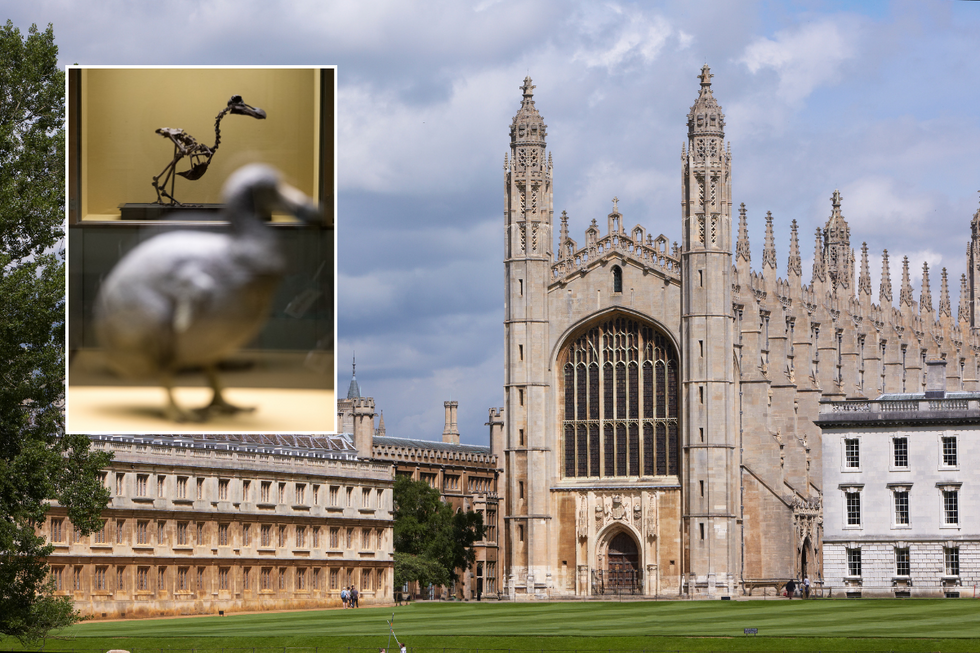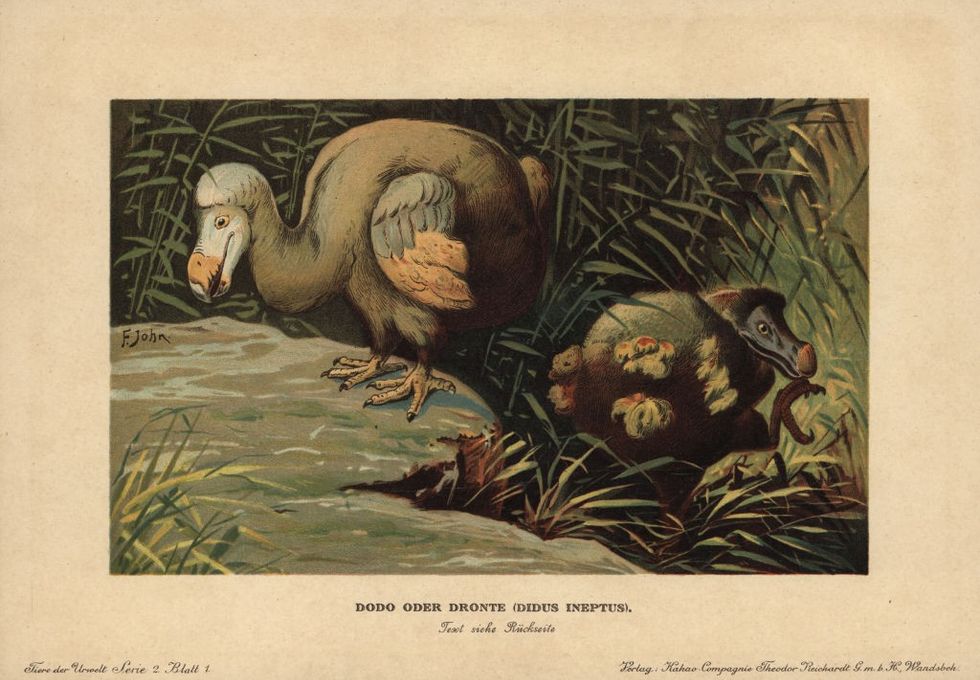The project aims to make the history of botany and zoology more diverse
Don't Miss
Most Read
Trending on GB News
A new role at the University of Cambridge has opened aiming to "decolonise the dodo and tigers."
The university's University of Zoology is looking for a PhD student to investigate its collection of plants and animals and to root out imperial connections.
The project is part of the university's efforts to address its own "legacies of enslavement and empire."
It is supported by the Arts and Humanities Research Council, which distributes taxpayer funding for research.

Cambridge University is looking for someone to decolonialise the dodo
Getty/PA
The advertisement states that the collections have "some of the world’s most celebrated animals and plants, from tigers to dodos and rhododendrons and tea...such specimens in our collections represent how colonial histories and environmental histories became tied to the same processes.
"The outcomes of this project will be significant. They have the potential to help shape how the natural history museum sector grapples with understanding its colonial legacy."
"[The project] will show far greater diversity of people were involved in the history of science – and society – than has traditionally been acknowledged. In this way it is hoped that more people will feel represented by museums.
"Cambridge’s natural history collections have always supported pioneering scientific research, but their potential for researching imperial cultural history is only just beginning to be realised."
LATEST DEVELOPMENTS

The dodo is going to be 'decolonised'
GEtty
The advert also wants to encourage further research on indigenous figures who helped European botanists and zoologists amass their collections.
A further prompt suggests a PhD researcher could investigate how "the definition of species, animals and kinds relate to ideas of race, gender and other variables of identity."
Various examples of the colonial links present in the collection are given, including a vast collection of specimens relating to the dodo, which became extinct in the 17th century following Europeans and their predatory animals in Mauritius.
Another is a tiger shot by the Prince of Wales, later Edward VII, on a diplomatic tour of India in 1875.
The researcher will also have access to the university herbarium, to examine the colonial connection of specimens such as tea and rhododendrons.
The successful applicant will work with PhD supervisors to uncover these histories, with a particular focus on south Asia and islands including Mauritius, Réunion and Rodrigues.
Reform UK MP Lee Anderson said: "Maybe these universities should concentrate on solving present day problems rather than wasting resources to decolonise the dodo."
GB News has approached the university for a comment.









